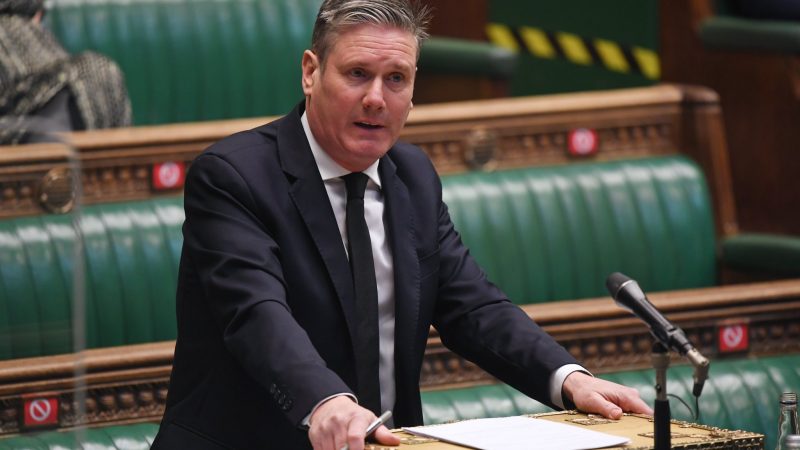
Keir Starmer has accused the government of having “put their out of office on” while the country faces the spiralling energy crisis and called on ministers to take action by convening task forces on a sector-by-sector basis.
Ahead of a visit to steel manufacturer Outokumpu Stainless on Thursday, the Labour leader declared that “energy intensive industries like steel are the cornerstone of British manufacturing and crucial for our economic recovery”.
“Our steel industry is not simply a proud industry of our past but – with Labour’s £3bn, ten-year commitment to make British steel green – a proud industry of our future,” Starmer said.
Ed Miliband used his speech to Labour conference last month to outline plans to support British manufacturers in winning “the global race” to decarbonise, including a ten-year investment commitment of £3bn to green the steel industry.
“It’s crucial we get a grip on the energy crisis. With millions already feeling the pinch as energy prices rise, and businesses and jobs at huge risk, we should be supporting industry to stop this escalating into a winter crisis,” Starmer said today.
“Labour has been calling on the government to come out of hiding and work with energy intensive industries, rather than finding a scapegoat for the problem. They should be convening task forces on a sector-by-sector basis to assess need in each sector, and devising bespoke solutions.
“But instead they’ve put their out of office on. Whilst other countries step up and act, the UK is staggeringly complacently sitting back.”
A row broke out last weekend between the Treasury and the Business Department over proposals to prop up businesses affected by the energy crisis, with Kwasi Kwarteng pushing for financial support for struggling firms.
A Treasury source said the Business Secretary had been “mistaken” and “making things up” when he claimed to be in talks with Rishi Sunak over proposals. But Boris Johnson, currently on holiday in Spain, intervened in Kwarteng’s favour.
The government said this week that a scheme for heavy industry businesses struggling with energy costs would be means-tested, time-limited and repayable, and only eligible if they can prove they have been pushed to the brink of closure.
Director-general of trade body UK Steel Gareth Stace welcomed the intention from Kwarteng, but warned that the package sounded like a “flimsy sticking plaster on what is really a major crisis that we are going through at the moment”.
Also commenting ahead of the Labour leader’s visit to the steel manufacturer on Thursday, Shadow Chancellor Rachel Reeves said: “With Labour, our industries and businesses will be heard and worked with, not dismissed and worked against.
“We will be collaborative, working alongside businesses, workers, industry bodies and unions to pull together in a national endeavour. With our commitment to buy, make and sell more in Britain, we’ll build a sustainable secure economy, never again leaving businesses to scramble.”
The comments from Starmer and Reeves followed a speech by Miliband on Wednesday addressing the Green Alliance. The Shadow Business, Energy and Industrial Strategy Secretary warned that the UK must learn from the energy crisis.
“We need to plan ahead, we cannot neglect our resilience as the government has and the best route to energy security is to go further and faster on the green transition at home,” Miliband said.
He also told the BBC’s Today programme on Wednesday that the energy system has left the UK “exposed and vulnerable as a country” and that he sees a “role for public ownership” in relation to the energy sector.
Miliband’s comments followed an appearance by Starmer on The Andrew Marr Show during Labour conference, in which the opposition leader told viewers that the party would not nationalise the Big Six energy firms.




More from LabourList
‘Security in the 21st century means more than just defence’
‘Better the devil you know’: what Gorton and Denton voters say about by-election
‘Unity or division’: Starmer’s message to voters in Gorton and Denton